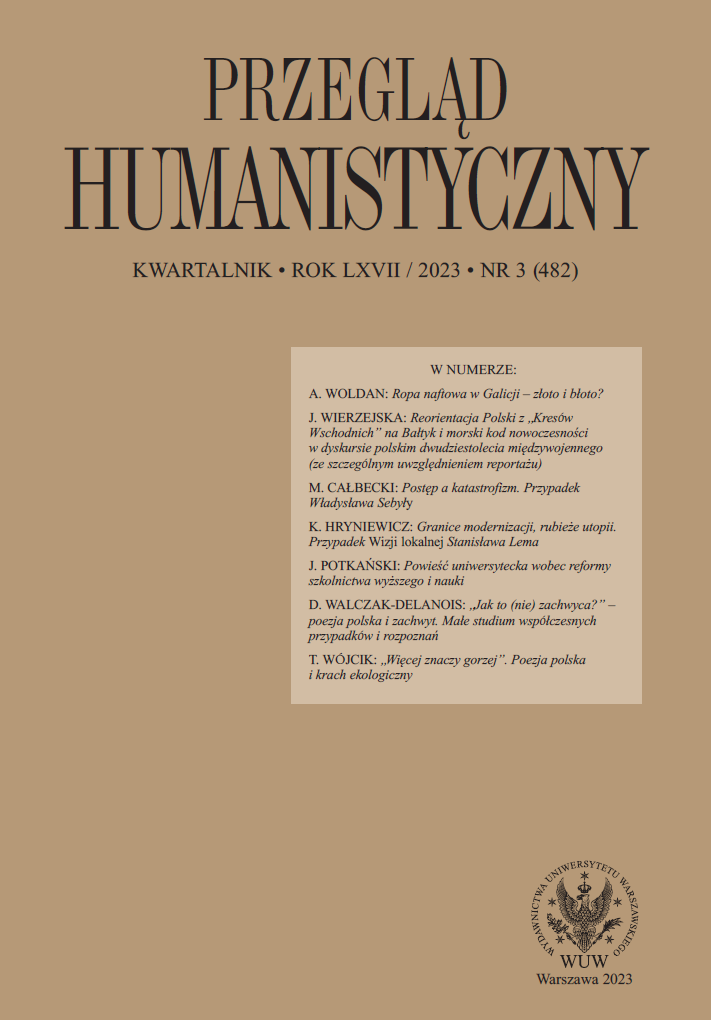Reorientacja Polski z „Kresów Wschodnich” na Bałtyk i morski kod nowoczesności w dyskursie polskim dwudziestolecia międzywojennego (ze szczególnym uwzględnieniem reportażu)
Poland’s Reorientation From the “Eastern Borderlands” to the Baltic Sea and the Maritime Code of Modernity in the Polish Discourse of the Interwar Period (With Particular Focus on Reportage)
Author(s): Jagoda WierzejskaSubject(s): Political economy, Pre-WW I & WW I (1900 -1919), Interwar Period (1920 - 1939)
Published by: Wydawnictwa Uniwersytetu Warszawskiego
Keywords: Eastern Borderlands; Baltic Sea; Gdynia; Maritime Poland; modernization
Summary/Abstract: The article provides an analysis of the Polish discourse concerning the phenomenon of Poland’s reorientation towards the Baltic Sea and an innovative ideological project of the “Maritime Poland” in the interwar period. Poland’s traditional geopolitical orientation used to be directed towards the East and South-East, primarily towards the lands of today’s Dnieper Ukraine, called in Polish the “Eastern Borderlands”. Such orientation had a colonial character, was ideologically rooted in Sarmatism and strongly stimulated by the Union of Lublin (1569). At the turn of the 20th century, an increasing number of Polish discourse’s manifestations started calling for revision of Poland’s traditional ties with that macro-region and its entanglement in conflicts that had led to the collapse of the Polish-Lithuanian Commonwealth. These voices pointed to the need to orient future Poland towards the Baltic Sea as a condition for Poland’s geopolitical and even national existence. The regaining of independence, together with access to the sea and the construction of the city and port of Gdynia gave a definite shape to Poland’s once hypothetical maritime orientation. This achievement was associated not only with the development of modern architecture, urban planning and the geopolitical configuration of the “New Europe”, but also with the development of the “Maritime Poland”, an ideological project which constituted a kind of “text” accompanying and stimulating the development of Gdynia. The text spoke, on the one hand, about the importance of the Baltic Sea for the Polish state and its economy, and on the other, about building a new cultural identity for Poland, a modern identity for its citizens and modernist values in individual and collective life. This article deals with the latter – cultural – aspect of the “Maritime Poland” project. The analysis is conducted based on emanations of Polish discourse primarily in the period between 1918 and 1939, with a particular focus on discourse in the reportage genre.
Journal: Przegląd Humanistyczny
- Issue Year: 482/2023
- Issue No: 3
- Page Range: 24-51
- Page Count: 28
- Language: Polish
- Content File-PDF

